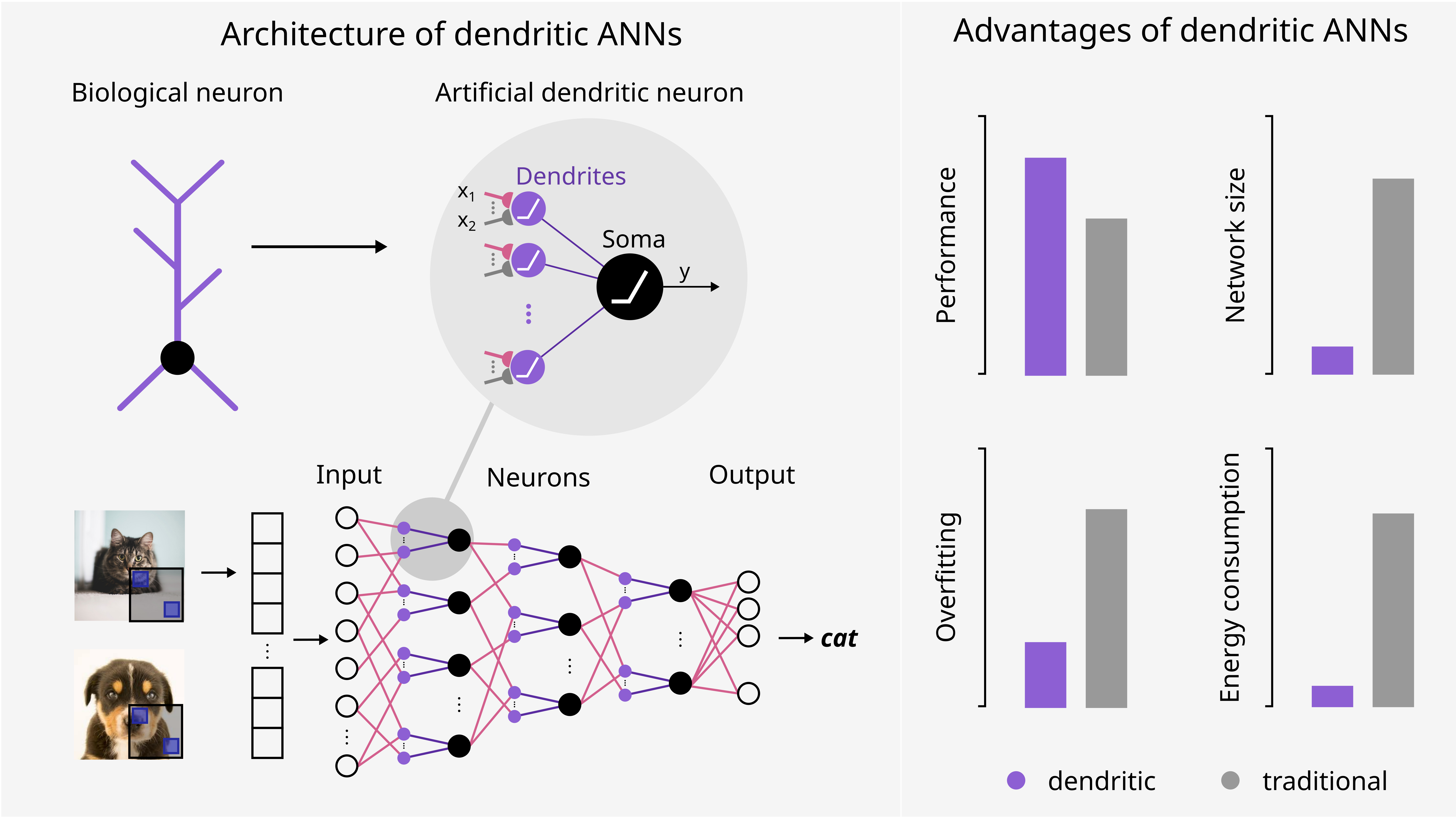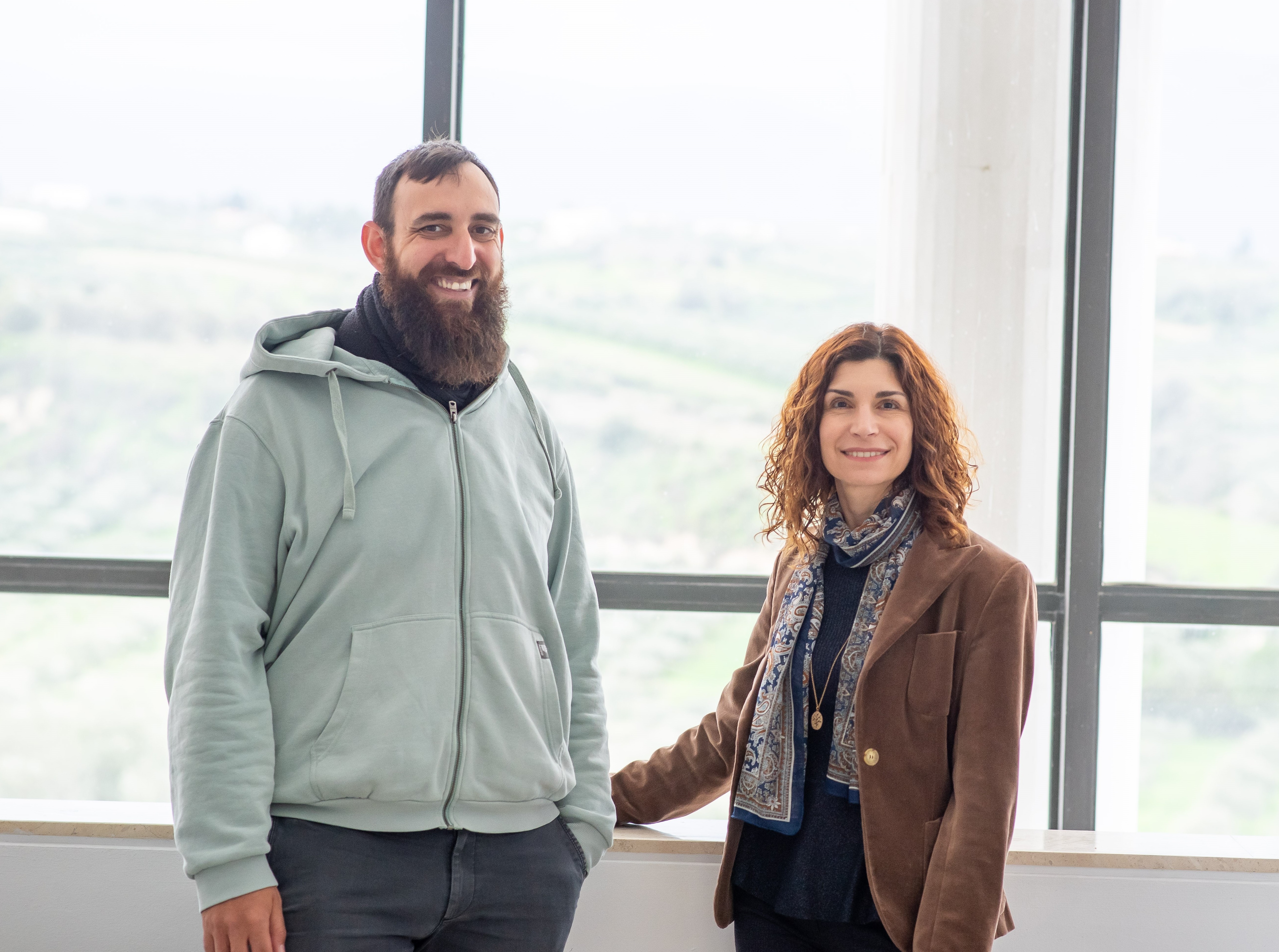All Science News

A new, brain-inspired AI technology boosts efficiency and reduces energy consumption
Researchers at the Institute of Molecular Biology and Biotechnology (ΙΜΒΒ) of FORTH have developed a new type of artificial neural network (ANN) that incorporates features of biological dendrites. This innovative design allows for accurate and robust image recognition while using significantly fewer parameters, paving the way for more compact and energy-efficient AI systems.
Artificial Intelligence (AI) plays a crucial role in driving innovation and improving efficiency across various industries, offering smarter solutions to complex problems and enhancing our daily lives. However, current AI systems are huge, comprising millions-to-billions of parameters, thus consuming massive amounts of energy, which limits their widespread use. By integrating neuro-inspired features into AI, we can create smaller and smarter systems that mimic how our brains process information, improving their effectiveness in recognizing patterns and making decisions. This leads to more efficient and effective AI applications.
Dendrites are the branched extensions of nerve cells that resemble tree branches. Their main function is to receive information from other neurons and transmit it to the cell body. For many years, the role of dendrites in information processing was unclear, but recent studies have revealed that they can perform complex calculations independently of the main neuron. Additionally, dendrites are essential for the brain's plasticity, which is its ability to adapt to changing environments.
In a recent article published in the esteemed journal Nature Communications, Dr. Panayiota Poirazi's team at the Institute of Molecular Biology and Biotechnology (IMBB) of FORTH proposed a novel architecture for artificial neurons that incorporate different features of biological dendrites, and tested it in various image recognition scenarios.

Artificial Neural Networks (ANNs) with Dendrites
This figure illustrates the structure of artificial neurons with dendrites, inspired by biological neurons. Compared to traditional ANNs, dendritic ANNs demonstrate improved performance in image recognition, characterized by lower energy costs, reduced network size, and reduced overfitting
The findings show that these dendritic ANNs are more resistant to overfitting and can match or exceed the performance of traditional ANNs while using much fewer resources, namely trainable parameters and learning steps. This improvement arises from a unique learning approach, whereby multiple nodes in the network contribute to the encoding of different categories. This is contrary to traditional ANNs, whereby most nodes are category-specific. Overall, our research suggests that incorporating dendritic features can make ANNs smarter and more efficient. This work was led by Dr. Chavlis, a postdoctoral researcher at IMBB-FORTH, under the supervision of Dr. Poirazi.

Dr. Panayiota Poirazi, Research Director & Dr. Spiros Chavlis, postdoctoral researcher at IMBB-FORTH
Link to the publication: https://doi.org/10.1038/s41467-025-56297-9
This work was funded by:
- The National Institutes of Health (NIH), grant number 1R01MH124867-02
- The NEUREKA project, GA 863245, within the H2020 Framework Program of the European Commission







